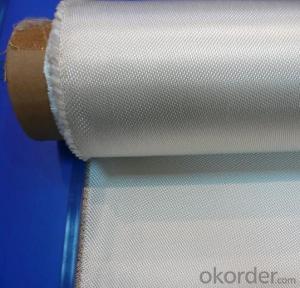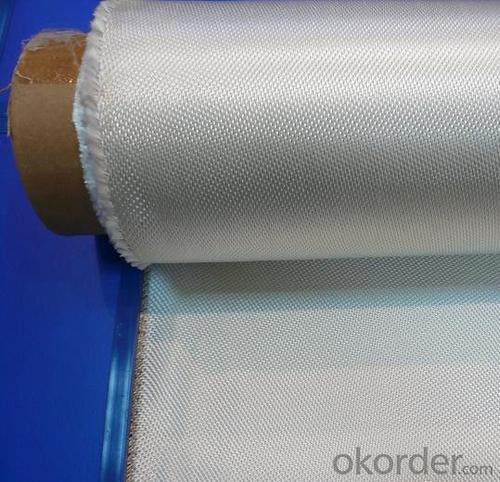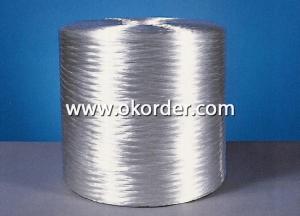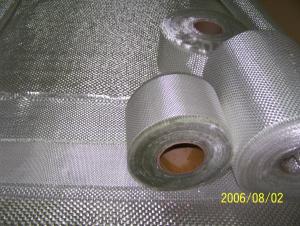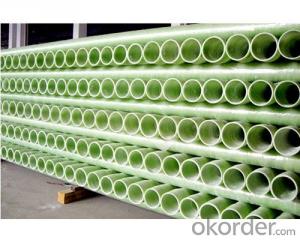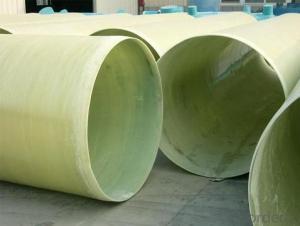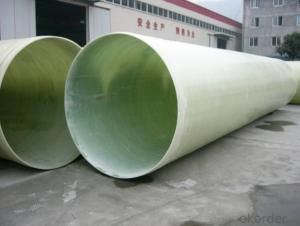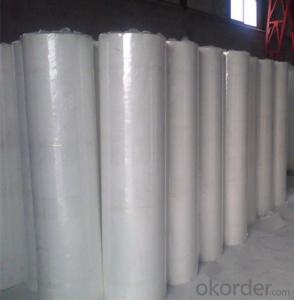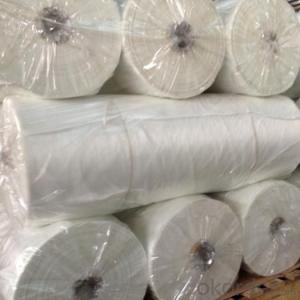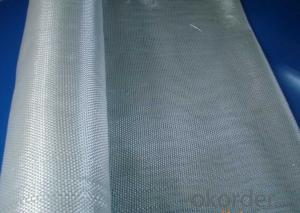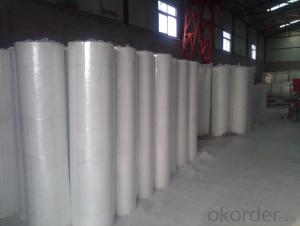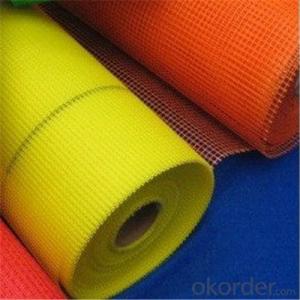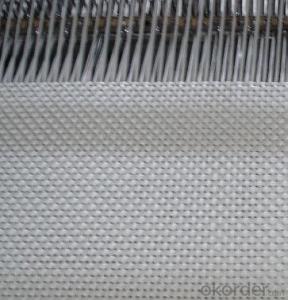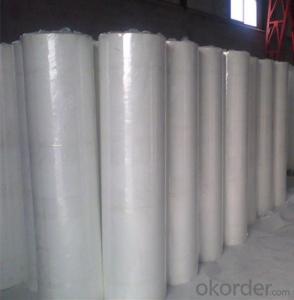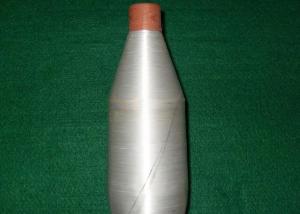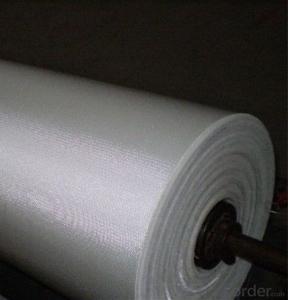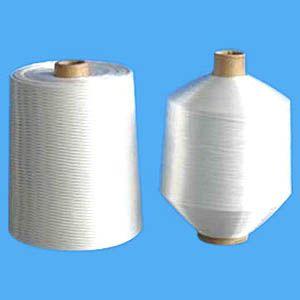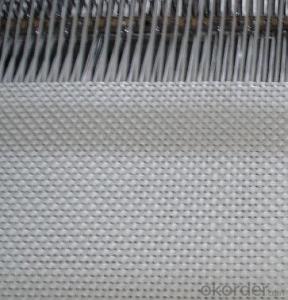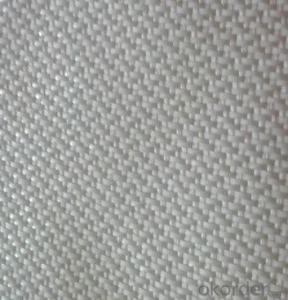Fiberglass Yarn Reinforced Fiberglass Fabric for Machinery and Metallurgy
- Loading Port:
- Shanghai
- Payment Terms:
- TT OR LC
- Min Order Qty:
- 500 m²
- Supply Capability:
- 50000 m²/month
OKorder Service Pledge
OKorder Financial Service
You Might Also Like
Fiberglass Fabric for Machinery and Metallurgy
Fiberglass Fabric Introduction:
Fiberglass fabric is weaved by high quality fiberglass,as a kind of engineering material,which is
many excellent characteristics:
flame-resisting,corrosion resistant,high strength,heat resistance.stable structure,good chemical resistance,durability.
Fiberglass Fabric Features:
Warp and weft yarns are parallel arrangement as flat situation, with uniform tension;
Fiber is aligned with large consistency, stable and easy operation;
Good moldability, fast and complete wet out in resins, resulting in high productivity;
Good transparency and high strength of composite products.
Fiberglass Fabric Specification:
mark | Fiber consistency(ends/ cm) |
Area weight (g/ m2) |
Thick-ness (mm) |
Width (cm) |
Length (mm) | Breaking strength(N)≥ |
weave | |||
Warp direction | Weft direction | Warp direction | Weft direction | |||||||
EW200 | 16 | 12 | 200±20 | 0.2 | 90-130 | 300-1200 | 980 | 980 | ||
EW210 | 16 | 12 | 200±20 | 0.21 | 90-130 | 300-1200 | 1080 | 1080 | Twill weave | |
Plain weave | ||||||||||
EWR360 | 3.2 | 1.8 | 354±18 | 0.35 | 50-300 | 100 | 2000 | 2000 | ||
EW280 | 16 | 10 | 280±28 | 0.26 | 90-130 | 300-1200 | 1800 | 1800 | ||
EW300 | 14 | 10 | 320±32 | 0.3 | 90-130 | 300-1200 | 1500 | 1500 | ||
EW430 | 20 | 12 | 420±42 | 0.43 | 90-130 | 300-1200 | 2000 | 2000 | Broken twill | |
EWR136 | 10 | 10 | 136±13 | 0.136 | 100 | 200 | 850 | 850 |
Plain weave | |
EWR200 | 8 | 7 | 200±20 | 0.21 | 100 | 200 | 1200 | 1200 | ||
EWR400 | 3.6 | 3.2 | 400±30 | 0.4 | 100 | 50-100 | 2500 | 2500 | ||
EWR600 | 2.6 | 2.5 | 600±50 | 0.6 | 100 | 40KG | 4000 | 4000 | ||
EWR580 | 2.5 | 2.3 | 576±29 | 0.58 | 100 | 40KG | 3850 | 3850 | ||
EWR800 | 1.8 | 1.8 | 800±60 | 0.8 | 100 | 40KG | 4600 | 4600 | ||
Product Show
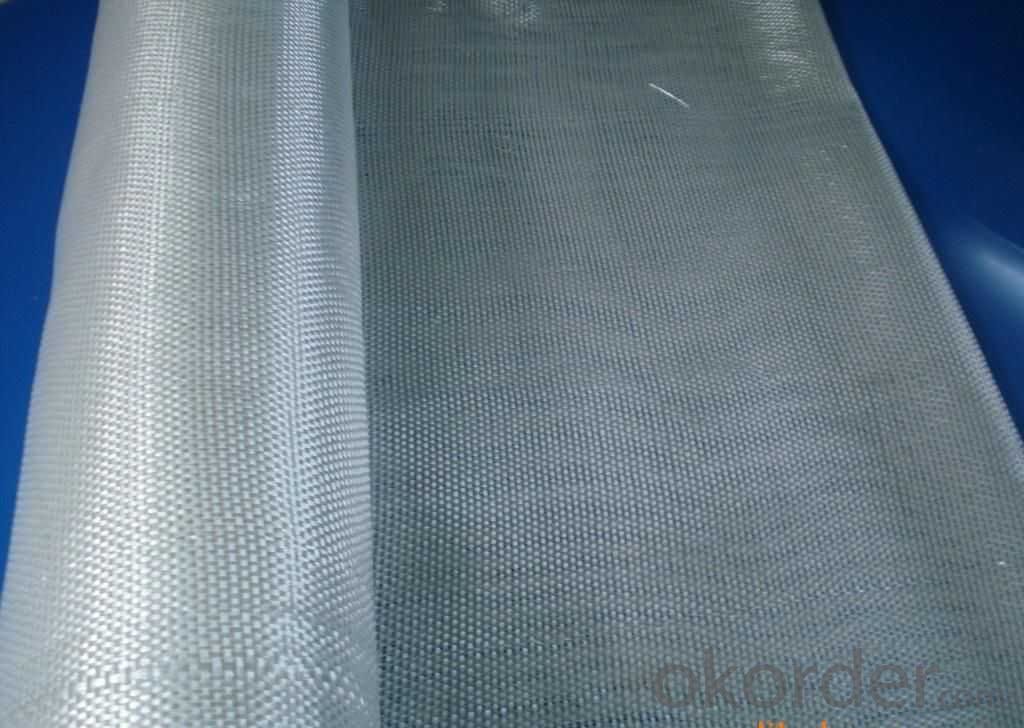
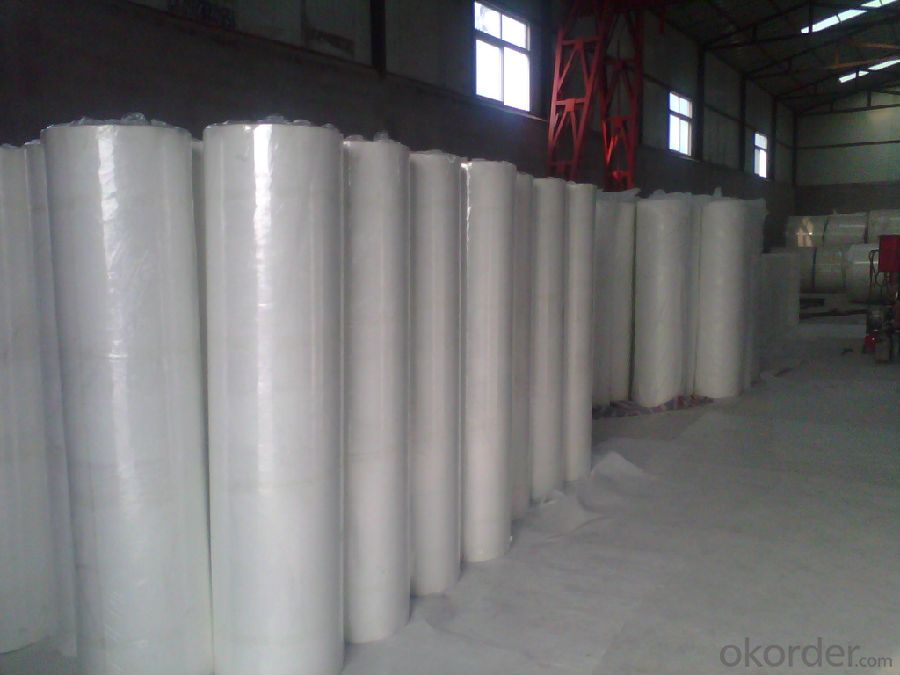
Fiberglass Fabric Usage:
E-glass woven roving is a schistose double faces reinforcement fabric that is weaved into from roving in directly.
E-glass fiber fabric (thin fabrics with thickness from 0.025 to 0.09mm) is suitable for electrical isolation mica product, wax cloth as the reinforcement materials.
E-glass woven roving applys to all kinds of polyester reinforcement system, (such as unsaturated polyester resin, vinylite,epoxy resin and phenolic resin.
E-glass woven roving is a high performance reinforcement material. It is widely used in hand lay-up and machinery processing products, (such as vessel, container, airplane and vehicle component, furniture, athletic facilities and other industry.
FAQ
1.Package of Fiberglass Fabric?
Fiberglass fabric is wound on a paper tube with inner diameters of 50. 8, 76 or 152mm. Each roll is wrapped in a plastic bag, then to be packed in a carton box. The rolls are to be horizontally placed.
Width (cm): 90, 100, 127
Length (m): 100, 200, 300, 400
2.Storage of Fiberglass Fabric?
Store rolls in a cool, dry location
Protect rolls from weather and other damage.
3.If sample available if needed?
We aim to offer our customer best Products&Service,samples are allowed if necessary.
- Q: Can fiberglass yarn be used for making bedding?
- While it is possible to utilize fiberglass yarn in the production of bedding, it is not a prevalent or recommended choice for this particular purpose. Despite its reputation for being sturdy, long-lasting, and resistant to both heat and chemicals, fiberglass yarn possesses certain drawbacks that make it less suitable. For instance, it is a brittle material that can easily break, thereby posing potential health risks if the fibers become airborne and are either inhaled or come into contact with the skin. Moreover, fiberglass yarn fails to provide the same level of comfort as natural fibers such as cotton or synthetic materials like polyester, which are commonly utilized in bedding. Consequently, it is generally advised to avoid the use of fiberglass yarn in the creation of bedding and instead opt for safer and more comfortable alternatives.
- Q: Is fiberglass yarn suitable for use in aerospace composites?
- Yes, fiberglass yarn is suitable for use in aerospace composites. It offers high strength-to-weight ratio, excellent corrosion resistance, and good thermal insulation properties, making it an ideal choice for aerospace applications.
- Q: Can fiberglass yarn be used in reinforcing concrete?
- Yes, fiberglass yarn can be used in reinforcing concrete. It is commonly used as a substitute or in addition to traditional steel reinforcement in concrete structures. Fiberglass yarn offers numerous advantages such as high tensile strength, corrosion resistance, and lightweight properties, making it an effective alternative for reinforcing concrete.
- Q: How does the resistance to impact of fiberglass yarn compare to other materials?
- When compared to many other materials, fiberglass yarn exhibits excellent impact resistance. Its exceptional strength and durability stem from its unique composition, which consists of fine glass fibers. These glass fibers in fiberglass yarn possess remarkable tensile strength, allowing them to withstand significant force without breaking or deforming. This impact resistance makes fiberglass yarn an ideal choice for various applications, especially in industries such as construction, where reinforcement of concrete is necessary. Additionally, fiberglass yarn finds use in the manufacturing of sports equipment, automotive parts, and aerospace components. In contrast to materials like cotton, polyester, or nylon, fiberglass yarn offers significantly higher impact resistance, ensuring that products made from it can endure heavy loads and harsh conditions while maintaining their structural integrity.
- Q: How does fiberglass yarn affect the sound absorption of a product?
- Fiberglass yarn enhances the sound absorption of a product by effectively trapping and dampening sound waves. The fine fibers in the yarn create a porous structure that allows sound energy to pass through, but also causes friction, converting the sound energy into heat. This results in reduced sound reflections and improved acoustics within the product.
- Q: Is fiberglass yarn suitable for use in electrical transformers?
- Indeed, fiberglass yarn proves to be an appropriate option for utilization in electrical transformers. Possessing exceptional insulating characteristics, fiberglass stands as an outstanding material that exhibits a remarkable ability to withstand high voltage without succumbing to breakdown. Moreover, its resistance to heat, moisture, and chemicals renders it an ideal guardian for the electrical elements housed within a transformer. In addition, the lightweight and flexible nature of fiberglass yarn enables effortless installation and upkeep of transformers. In conclusion, the unparalleled properties of fiberglass yarn establish it as a dependable and long-lasting preference for implementation in electrical transformers.
- Q: What are the common thicknesses or gauges of fiberglass yarn?
- The common thicknesses or gauges of fiberglass yarn can vary depending on the specific application or industry. However, some commonly used thicknesses of fiberglass yarn range from 450 tex (tex is the unit of measure used for linear mass density) to 2400 tex. These thicknesses are often used in industries such as aerospace, automotive, construction, and textiles. Additionally, fiberglass yarn can also be found in other thicknesses or gauges depending on the specific requirements of a particular project or product.
- Q: What are the different coating options available for fiberglass yarn?
- Fiberglass yarn offers a range of coating options, each with its own unique properties and advantages. The coatings commonly used include silicone, acrylic, polyurethane, and vinyl. Silicone coating is well-known for its exceptional resistance to high temperatures, chemicals, and abrasion. It creates a smooth and non-sticky surface, making it perfect for insulation and fireproofing purposes. Acrylic coating, on the other hand, is widely utilized due to its flexibility and durability. It offers excellent protection against UV rays, water, and mildew. Acrylic-coated fiberglass yarn is often employed for outdoor applications like awnings, tents, and canopies. Polyurethane coating is ideal for applications requiring both strength and flexibility. It boasts excellent resistance to abrasion and strong adhesion. This type of coating is commonly used in items like conveyor belts and industrial hoses. Vinyl coating, known for its exceptional durability and resistance to chemicals, is often preferred. It provides excellent protection against acids, oils, and solvents. Vinyl-coated fiberglass yarn is frequently used in the construction of chemical storage tanks, pipes, and linings. Furthermore, there are specialty coatings available for specific applications. For instance, PTFE (polytetrafluoroethylene) coating is known for its non-stick properties and is commonly found in release fabrics and conveyor belts. In summary, the choice of coating for fiberglass yarn depends on specific requirements such as temperature resistance, chemical resistance, flexibility, and durability.
- Q: Can fiberglass yarn be used for reinforcement purposes?
- Yes, fiberglass yarn can be used for reinforcement purposes. Fiberglass yarn is known for its high strength and durability, making it an ideal material for reinforcing various products and materials. It is commonly used in the construction industry to reinforce concrete, as well as in the production of fiberglass composites for applications such as automotive parts, boat hulls, and aerospace components. Fiberglass yarn can also be used to reinforce fabrics, ropes, and cables, providing them with increased strength and resistance to tearing or breaking. Overall, fiberglass yarn is a versatile material that can effectively enhance the mechanical properties of various products when used for reinforcement purposes.
- Q: How does fiberglass yarn affect the appearance of a product?
- The appearance of a product can be significantly influenced by fiberglass yarn. Firstly, fiberglass yarn is renowned for its strength and durability, which can enhance the overall appearance of a product by providing a polished and pristine finish. The ability to weave it into various patterns and textures also allows for the creation of visually appealing designs, adding aesthetic value to the final product. Moreover, fiberglass yarn can be easily dyed or coated, providing manufacturers with the opportunity to achieve a wide range of colors and finishes. This versatility enables the creation of visually appealing products that can be customized to suit different preferences or brand identities. Whether utilized in textiles, composites, or other applications, fiberglass yarn can enhance a product's attractiveness and set it apart from competitors. Additionally, the inherent properties of fiberglass yarn, such as its resistance to chemicals, moisture, and UV rays, can also impact the appearance of a product over time. These qualities ensure that the product maintains its original appearance for an extended period, reducing the likelihood of fading, discoloration, or degradation. This durability can be particularly advantageous in outdoor or high-traffic environments where maintaining a visually appealing product is crucial. In conclusion, fiberglass yarn can positively affect the appearance of a product through its strength, design versatility, and ability to withstand environmental factors. Its inclusion can enhance the overall aesthetic appeal, durability, and longevity of a product, making it a valuable choice for manufacturers seeking to create visually appealing and long-lasting products.
Send your message to us
Fiberglass Yarn Reinforced Fiberglass Fabric for Machinery and Metallurgy
- Loading Port:
- Shanghai
- Payment Terms:
- TT OR LC
- Min Order Qty:
- 500 m²
- Supply Capability:
- 50000 m²/month
OKorder Service Pledge
OKorder Financial Service
Similar products
Hot products
Hot Searches
